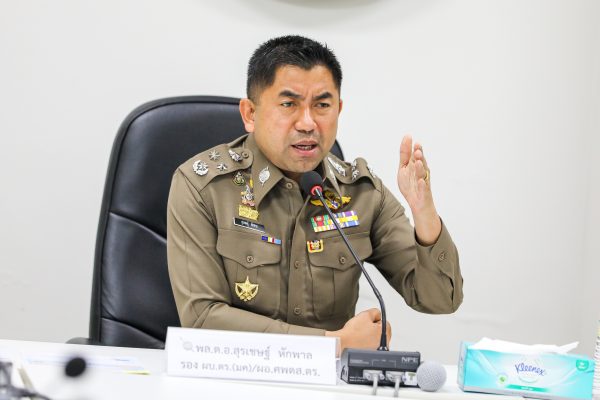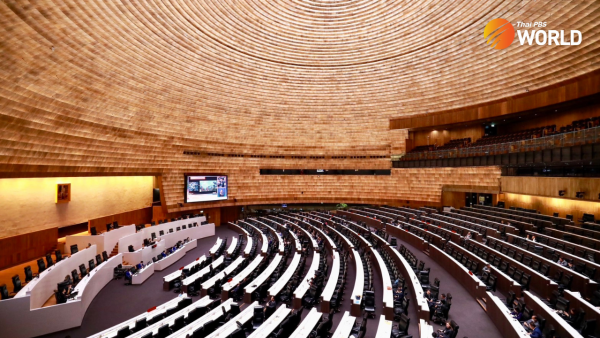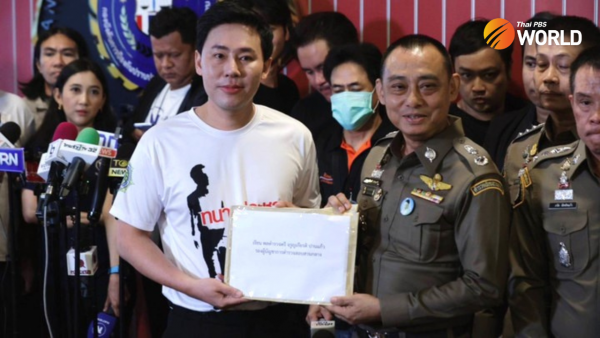Uncertainties with opportunism, despair and risk-taking in full swing

The prime minister is taking a big gamble with his future, something intertwined with the national course. The opposition has proposed an ironic and controversial way to handle COVID-19. The real stakeholders, meanwhile, are probably not too sure what scares them more, real threats of an outbreak or the game Thai politicians are playing at this moment of truth.
Great uncertainties are plaguing Thailand, and obviously, the coronavirus is not the only one to blame. Politics is crippling and blinding the nation at the worst possible time, when Thais absolutely, unequivocally and most crucially don’t need propaganda and prejudices at the national level.
Divisive politics can damage a nation in many ways, but the worst of them is that it takes away a unified ability to determine right and wrong, something that can give birth to, and drive, truly good governance, and genuine eradication of bad weeds. As it turns out in Thailand, morality goes out the window because the first question on everyone’s mind when something bad happens is: What “colour” does it involve?
Is Prayut, in consolidating executive powers for himself to deal with COVID-19, virtually betting on his own future but putting the country at risks in the process? Is the opposition sincere or rocking the boat when the national focus should be solely and impartially on combatting COVID-19? Are vaccine roll-outs truly ineffective and the government is to blame, or does current cutthroat politics make them look so? Does the opposition’s “national government” call make sense, in other words a proposed, well-intended structure that could increase efficiency when we need it, or is it just part of the game?
How much credit should the government get for last year’s “success” in keeping COVID-19 at arm’s length, and how much is its fault regarding the current situation? And as for the general public feelings at the moment, how much of it is reasonable scare and anger, and how much of it is politically induced? Who is opportunistic, Prayut or the parliamentary opposition?
Those are among various important questions that should have been addressed in a normal atmosphere with minimal biases, for everyone’s sake. Thailand, however, has lost its ability to consider those issues the way they should be pondered. The answers are dictated by political or ideological leanings. Prayut Chan-o-cha’s supporters will say one thing, while Thanathorn Juangroongruangkit’s followers will say another.
Prayut and his economic team facing unprecedented test of crisis management
The unprecedented task of pulling Thailand out of its COVID-induced economic crisis rests on the shoulders of just three men. And there are signs that Prime Minister Prayut Chan-o-cha, his deputy and Energy Minister Supattanapong Punmeechaow, and Finance Minister Arkhom Termpittayapaisith are feeling the pressure of their huge burden.
And those are just “current” questions. In the future, what are Thais to say about corruption scandals, about “unjust privileges”, about questionable characters put in the Cabinet, about court rulings, about what should be defined as violations of the law? National divide guarantees that, in the future, when a minister is corrupt, or a defendant facing rock-solid evidence is left off a legal hook, or inefficient persons join the Cabinet, or protesters burn properties that are not theirs, or a legal process takes forever, one half of the nation will accept it without questioning. That is because the urge to whitewash or blur the wrong “on the same side” and hide good deeds or noble intentions of the rivals is so strong.
Worse still, the prejudices are invading and conquering places that they have no business being in. When he was alive, Uncle Kom (comedian Arkom Preedakul) must have been quietly proud of his ability to make people laugh wholeheartedly and unconditionally, regardless of their “colours”. His good soul might have been disturbed by how the aftermath of his death has panned out politically.
Thailand has come to a point where people must know political thinking of actors, artists and other professionals first in order to decide whether they should appreciate their work. Reactions to Prayut’s “gamble”, the opposition’s controversial move, and Uncle Kom’s death have proven that if prevalent biases were an exception before, they are becoming a rule now.
By Tulsathit Taptim






